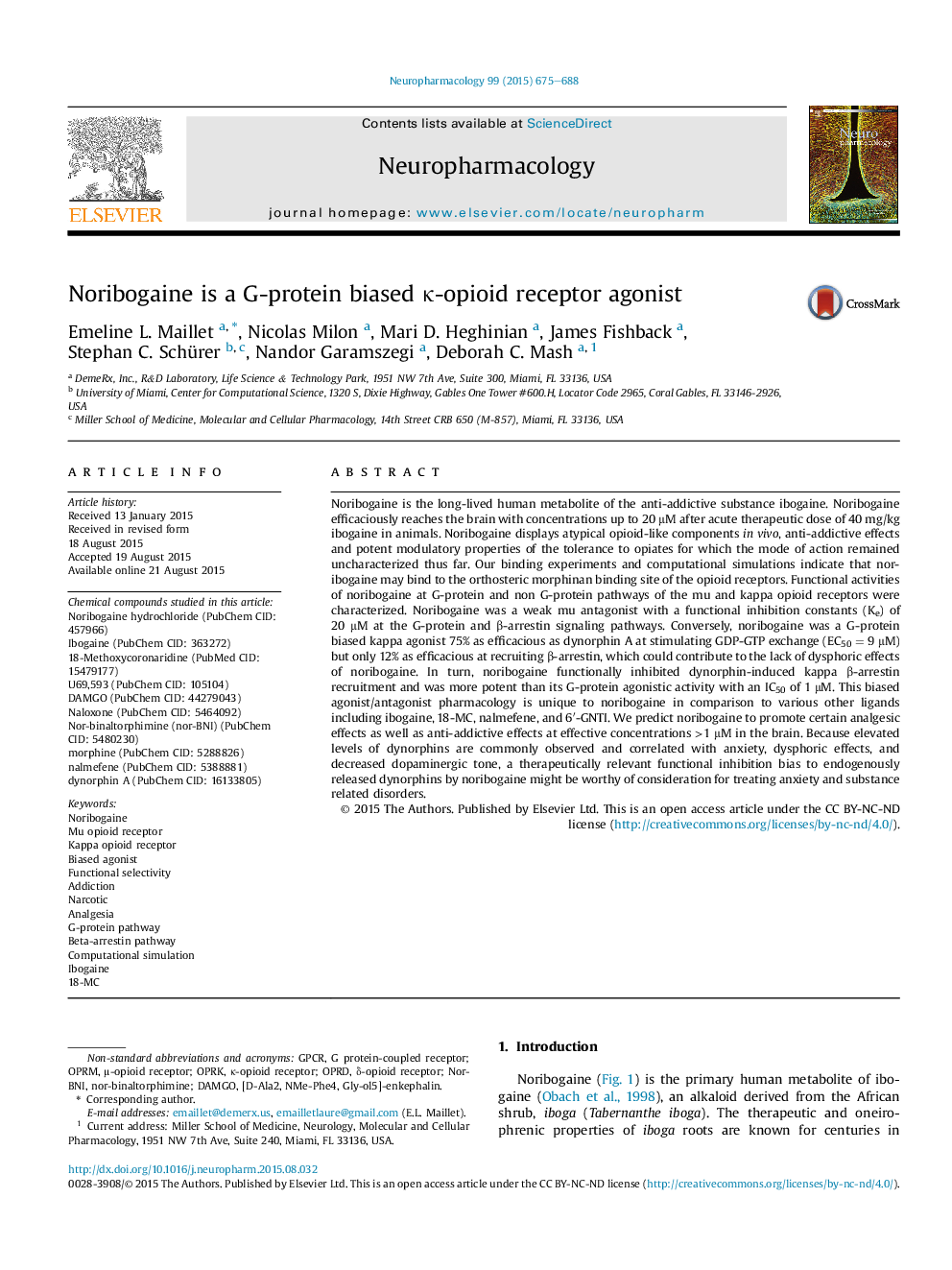| کد مقاله | کد نشریه | سال انتشار | مقاله انگلیسی | نسخه تمام متن |
|---|---|---|---|---|
| 5813862 | 1556616 | 2015 | 14 صفحه PDF | دانلود رایگان |
عنوان انگلیسی مقاله ISI
Noribogaine is a G-protein biased κ-opioid receptor agonist
دانلود مقاله + سفارش ترجمه
دانلود مقاله ISI انگلیسی
رایگان برای ایرانیان
کلمات کلیدی
موضوعات مرتبط
علوم زیستی و بیوفناوری
علم عصب شناسی
علوم اعصاب رفتاری
پیش نمایش صفحه اول مقاله

چکیده انگلیسی
Noribogaine is the long-lived human metabolite of the anti-addictive substance ibogaine. Noribogaine efficaciously reaches the brain with concentrations up to 20 μM after acute therapeutic dose of 40 mg/kg ibogaine in animals. Noribogaine displays atypical opioid-like components in vivo, anti-addictive effects and potent modulatory properties of the tolerance to opiates for which the mode of action remained uncharacterized thus far. Our binding experiments and computational simulations indicate that noribogaine may bind to the orthosteric morphinan binding site of the opioid receptors. Functional activities of noribogaine at G-protein and non G-protein pathways of the mu and kappa opioid receptors were characterized. Noribogaine was a weak mu antagonist with a functional inhibition constants (Ke) of 20 μM at the G-protein and β-arrestin signaling pathways. Conversely, noribogaine was a G-protein biased kappa agonist 75% as efficacious as dynorphin A at stimulating GDP-GTP exchange (EC50 = 9 μM) but only 12% as efficacious at recruiting β-arrestin, which could contribute to the lack of dysphoric effects of noribogaine. In turn, noribogaine functionally inhibited dynorphin-induced kappa β-arrestin recruitment and was more potent than its G-protein agonistic activity with an IC50 of 1 μM. This biased agonist/antagonist pharmacology is unique to noribogaine in comparison to various other ligands including ibogaine, 18-MC, nalmefene, and 6â²-GNTI. We predict noribogaine to promote certain analgesic effects as well as anti-addictive effects at effective concentrations >1 μM in the brain. Because elevated levels of dynorphins are commonly observed and correlated with anxiety, dysphoric effects, and decreased dopaminergic tone, a therapeutically relevant functional inhibition bias to endogenously released dynorphins by noribogaine might be worthy of consideration for treating anxiety and substance related disorders.
ناشر
Database: Elsevier - ScienceDirect (ساینس دایرکت)
Journal: Neuropharmacology - Volume 99, December 2015, Pages 675-688
Journal: Neuropharmacology - Volume 99, December 2015, Pages 675-688
نویسندگان
Emeline L. Maillet, Nicolas Milon, Mari D. Heghinian, James Fishback, Stephan C. Schürer, Nandor Garamszegi, Deborah C. Mash,